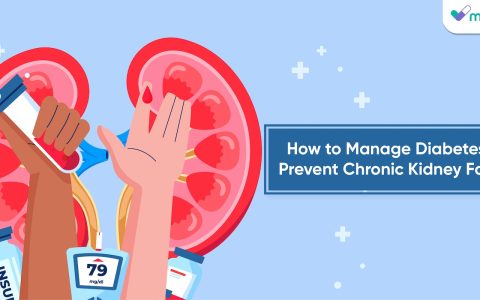
Introduction:
In the fast-paced and demanding landscape of modern life, stress has become an almost ubiquitous companion. The impact of chronic stress on both physical and mental well-being cannot be overstated. This comprehensive article delves into the complexities of stress, examining its effects on health, exploring the benefits of stress management, and detailing potential disadvantages. Additionally, it provides an in-depth exploration of treatment approaches to empower individuals in their journey towards better health through stress management.
I. The Anatomy of Stress: A Comprehensive Overview:
-
Defining Stress:
- Stress is the body’s natural response to perceived threats, triggering the “fight or flight” response.
- Chronic stress arises when the body remains in a heightened state of alert for extended periods.
-
Physiological and Psychological Impact:
- Stress manifests physically through increased heart rate, elevated cortisol levels, and tense muscles.
- The psychological impact of stress includes heightened anxiety, irritability, and difficulty concentrating.
-
Sources of Stress:
- Stressors can be external (work pressure, financial concerns) or internal (negative thought patterns, self-imposed expectations).
- Identifying and categorizing stressors is essential for effective stress management.
II. Benefits of Stress Management:
-
Improved Mental Health:
- Benefits: Stress management techniques, such as mindfulness and relaxation exercises, can alleviate symptoms of anxiety and depression.
- Disadvantages: Neglecting stress management may lead to mental health issues, affecting daily functioning and quality of life.
-
Enhanced Physical Health:
- Benefits: Managing stress contributes to improved cardiovascular health, reducing the risk of heart diseases.
- Disadvantages: Prolonged stress can lead to elevated blood pressure, weakened immune function, and increased susceptibility to illnesses.
-
Cognitive Function:
- Benefits: Stress management enhances cognitive function, improving memory and decision-making.
- Disadvantages: Chronic stress may lead to cognitive impairment and an increased risk of neurodegenerative diseases.
-
Optimal Emotional Well-being:
- Benefits: Effective stress management fosters emotional resilience, helping individuals cope with life’s challenges.
- Disadvantages: Unmanaged stress can contribute to mood swings, irritability, and a sense of overwhelm.
III. Potential Disadvantages of Unmanaged Stress:
-
Mental Health Implications:
- Disadvantages: Chronic stress is a significant risk factor for anxiety disorders, depression, and other mental health conditions.
- Mitigation: Seeking professional help, such as therapy or counseling, is essential for addressing underlying psychological stressors.
-
Physical Health Consequences:
- Disadvantages: Stress is linked to a range of physical health issues, including cardiovascular diseases, gastrointestinal problems, and autoimmune disorders.
- Mitigation: Lifestyle changes, including stress management techniques, regular exercise, and a balanced diet, can mitigate the physical impact of stress.
-
Impact on Relationships:
- Disadvantages: Stress can strain relationships, leading to communication breakdowns and interpersonal conflicts.
- Mitigation: Open communication, empathy, and shared stress management strategies contribute to healthier relationships.
-
Workplace Challenges:
- Disadvantages: Work-related stress can lead to burnout, decreased productivity, and increased absenteeism.
- Mitigation: Implementing workplace stress management programs, setting realistic goals, and fostering a supportive work environment can mitigate workplace stress.
IV. Treatment Approaches for Optimal Stress Management:
-
Mind-Body Techniques:
- Treatment: Practices such as mindfulness meditation, deep breathing exercises, and yoga promote relaxation and reduce stress.
- Optimization: Consistent practice of mind-body techniques, incorporating them into daily routines, and participating in guided sessions enhance their effectiveness.
-
Counseling and Therapy:
- Treatment: Professional counseling provides a safe space to explore and address underlying stressors.
- Optimization: Regular sessions, especially during challenging periods, offer ongoing support and strategies for coping with stress.
-
Physical Activity:
- Treatment: Regular exercise releases endorphins, reduces stress hormones, and promotes overall well-being.
- Optimization: Engaging in activities that are enjoyable and align with individual preferences increases adherence to regular exercise routines.
-
Time Management and Goal Setting:
- Treatment: Structuring time effectively and setting realistic goals prevent overwhelm and reduce stress.
- Optimization: Prioritizing tasks, breaking them into manageable steps, and celebrating achievements contribute to effective time management.
-
Social Support Networks:
- Treatment: Building and maintaining strong social connections provide emotional support during stressful times.
- Optimization: Nurturing relationships, participating in social activities, and communicating openly strengthen support networks.
-
Healthy Lifestyle Choices:
- Treatment: Adequate sleep, a balanced diet, and avoiding excessive caffeine and alcohol contribute to stress resilience.
- Optimization: Consistently prioritizing healthy lifestyle choices establishes a foundation for ongoing stress management.
Potential Disadvantages of Exercise and How to Mitigate Them:
-
Overtraining Risks:
- Disadvantages: Overtraining syndrome can lead to fatigue, decreased performance, and a compromised immune system.
- Mitigation: Periodization, proper rest, and recovery are crucial to prevent overtraining. Monitoring training intensity and incorporating rest days are key strategies.
-
Psychological Strain:
- Disadvantages: An obsession with exercise may contribute to body image issues and the development of eating disorders.
- Mitigation: Promoting a balanced approach to exercise, focusing on overall well-being rather than extreme physique goals. Seeking professional help for mental health concerns is essential.
-
Time Constraints and Accessibility:
- Disadvantages: Busy lifestyles and limited access to exercise facilities may hinder regular physical activity.
- Mitigation: Incorporating short, intense workouts or finding creative ways to stay active in daily routines. Utilizing home workouts, outdoor activities, or workplace wellness programs can address accessibility challenges.
-
Health Conditions and Precautions:
- Disadvantages: Certain health conditions may require modifications to exercise routines or medical supervision.
- Mitigation: Consultation with healthcare professionals before starting a new exercise program is crucial. Individualized exercise plans and regular health check-ups can help manage and prevent complications.
III. Treatment Approaches for Optimal Health and Exercise Optimization:
-
Individualized Exercise Programs:
- Treatment: Consulting with fitness trainers, physiotherapists, or healthcare providers ensures personalized exercise plans.
- Optimization: Regular assessments and adjustments to exercise routines based on individual progress and limitations.
-
Injury Prevention and Management:
- Treatment: Incorporating proper warm-up and cool-down routines can reduce the risk of injuries.
- Optimization: Rehabilitation exercises for individuals recovering from injuries, focusing on strengthening and flexibility.
-
Balancing Exercise with Rest:
- Treatment: Scheduled rest days are essential for recovery, preventing burnout and overtraining.
- Optimization: Prioritizing sufficient and quality sleep as part of overall recovery. Adjusting exercise intensity and duration based on individual needs.
-
Nutritional Support:
- Treatment: Proper nutrition supports overall health and complements the effects of regular exercise.
- Optimization: Consulting with nutritionists for personalized dietary recommendations, especially for those with specific fitness or health goals.
Conclusion:
Understanding and managing stress is not merely a luxury but a necessity for overall well-being. Acknowledging the benefits of stress management, recognizing potential disadvantages of unmanaged stress, and implementing treatment approaches empower individuals to take control of their mental and physical health. Through a holistic approach that includes mind-body techniques, counseling, physical activity, effective time management, and social support, individuals can navigate the complexities of stress and foster a resilient foundation for better health. As we unravel the intricacies of stress, the journey towards optimal well-being becomes an empowering and transformative endeavor.



